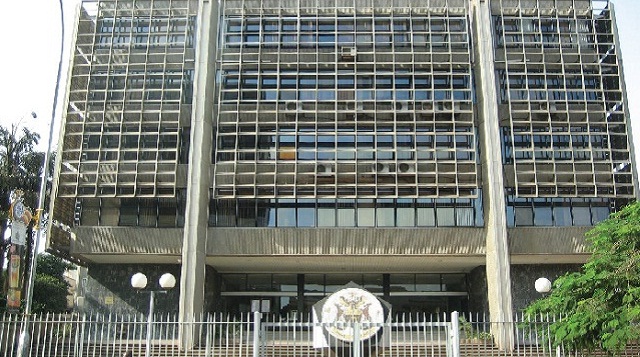
But experts wonder if economy can survive local and regional political turmoil
Kampala, Uganda | JULIUS BUSINGE | There is some good news for Uganda’s economy finally. The Central Bank’s latest annual report shows a sharper GDP growth in 2016/17 than had earlier been estimated.
The FY2016/2017 growth figures released on Oct. 24 by Governor Emmanuel Tumusiime Mutebile quote revised estimates of economic activity by the Uganda Bureau of Statistics (UBOS).
They show that, quarter on quarter, GDP growth averaged 1.1% in the four quarters of 2016/17, which is equivalent to annualised growth of 4.4%; which is 0.5 percentage points higher than the earlier growth estimates of 3.9%. But that is still 0.3 percentage points lower than the outturn for FY2015/16 of 4.7% and lower than 6% average government projection for the last five years.
“Growth in Q2 and Q3 – 2016/17 was particularly robust at 1.4 and 1.8% respectively which suggests a sharp GDP growth,” the report reads in part. It says this growth is consistent with the Composite Index of Economic Activity (CIEA), which estimates growth of 1.9% in the quarter to May 2017. The CIEA estimates the annual growth to August 2017 at 4.8% an indication of a pick in the level of economic activity.
Earlier, on Oct. 3, Mutebile had given a hint of the good news to reporters in Kampala. The BoU boss said core inflation is forecast to remain around the medium-term target of 5% and economic activity is slowly gaining momentum. He said this warranted a cautious easing of monetary policy to boost private sector credit growth and strengthen the economic growth momentum. He accordingly cut the central bank rate to 9.5% from 10%; the lowest mark ever, for the next three months.
Looking ahead, Mutebile said GDP growth for FY2017/18 is projected to pick up to 5.0–5.5%. He said supportive signals included the current accommodative monetary policy, recovery in external demand and Foreign Direct Investment (FDI), increased activity in the agricultural sector due to improved weather conditions, and the fiscal stimulus outlined in the national budget for FY 2017/18.
In a detailed Monetary Policy Report, Mutebile appears to blame fiscal issues for holding back economic performance.
He said structural constraints such as the high cost of doing business in Uganda is partly to blame for a harsh economic environment “which cannot be addressed by monetary policy alone”.
He said Uganda’s lending rates are highest and profitability indicators in Uganda are the lowest amongst its key competitors in the East African Community (EAC) region.
Return on assets (ROA) in Uganda remains the lowest in the region averaging at 11.3% in Uganda in FY2016/17 compared to 26.4% recorded in Kenya and 19.8% in Tanzania.
The other indicator to watch out is the country’s debt stock which stood at Shs33.8trillion as at the end of June 2017. This represents about 36% of the country’s total GDP, a favourable position according to economists who put the acceptable threshold of debt-to-GDP at 50%. But others say that is no panacea.
Experts react
Some experts like Ddumba Ssentamu, an economist and former vice chancellor of Makerere University say political questions need to be resolved fast for investors to gain more confidence in the economy.
“Parliament has to sit down and sort out the issue as fast as possible; if they don’t do that, it means the economy will suffer,” Ssentamu told The Independent.
He praised the government increased investment in infrastructure projects.
“It will lower the cost of doing business and make businesses more profitable going forward,” he said. He said, however, the government needs to improve project efficiency by closely monitoring progress and meeting deadlines.
He said the government needs new areas of widening the tax base to improve revenue to support productive public expenditure.
Despite the optimism on the horizon, some pessimism persists amongst analysts. Many are anxious over what extent the current political tension over the age-limit could hurt the economy.
 The Independent Uganda: You get the Truth we Pay the Price
The Independent Uganda: You get the Truth we Pay the Price



